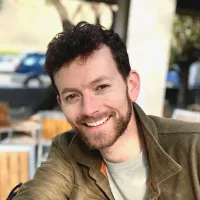Christopher Lamb
PhD and MA Queen’s Geography and Planning, BA Geography/History
- Email: christopher.lamb@ubc.ca
Christopher is a postdoctoral research fellow at SCARP working with Dr. Maggie Low. His current research focuses on the possibilities and challenges for decolonizing Planning education and practice in BC and Canada.
Trained as a Geographer, Christopher’s research and teaching bring together spatial, postcolonial, and phenomenological theories with learnings from Indigenous scholars, educators, mentors, and colleagues to focus on education. Having grown up in the Kootenays and worked in reforestation for over a decade in interior BC, Christopher brings his experiences of living and working in resource communities to his work on unsettling spatial education in BC and Canada.
Christopher has taught in the Department of Geography at UBC and the Department of Geography and Planning at Queen’s University. He was a co-director of the SSHRC Insight-funded research project ‘Assessing Student Awareness of Indigenous Peoples.’ He is honoured to serve as a member of the Planning Practice and Reconciliation Committee of the Planning Institute of British Columbia.
As Canadian Planning institutes and schools embrace Reconciliation mandates, they are increasingly recognizing the need to actively decolonize planning practices and support their members in doing this work. Critically, the Planning discipline must take seriously the TRC Calls to Action, particularly Call 47: the repudiation of the concepts used to justify colonialism, including the Doctrine of Discovery and terra nullius, which remain central to colonial land use planning institutions and practice.
Christopher’s current MITACS-funded research responds to this call to action, and is focused on two main questions: a) What working knowledge and social attitudes do planners in BC hold about Indigenous land use and planning principles, reconciliation, and decolonization, and b) how is planning education impacting planning students’ and professionals’ knowledge and perspectives? The results of this research will measure and provide benchmarking of the impact of planning education on planners’ awareness about Indigenous land use and planning principles, reconciliation, and decolonization; and liaise with planning institutes in BC and Canada to address the issues created by the state of planning education and practice.
